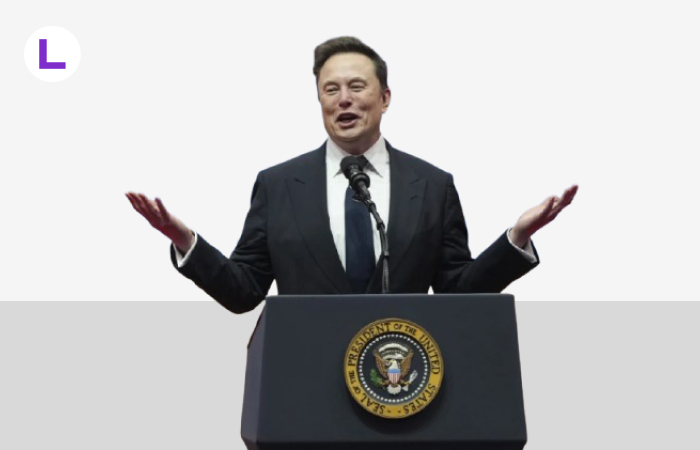Brussels/London – European markets faced significant disruptions on Thursday following U.S. President Donald Trump’s new tariff policy, which imposed heavy duties on imports from over 180 countries and territories. The European Union saw a 20% tariff on its exports, while the United Kingdom faced a 10% levy, forcing investors to reassess their strategies.
While many sectors encountered losses, others showed resilience, navigating the economic uncertainty in different ways.
Luxury Sector Faces a Sharp Decline
European luxury brands bore the brunt of the new tariffs as concerns over reduced U.S. demand led to sharp stock declines.
- The Stoxx Luxury 10 Index plummeted by 4.8%.
- Burberry saw an 8.3% drop.
- LVMH declined by 4.8%.
- Kering lost 5%.
Analysts from Citi pointed out that brands like Birkenstock, Brunello Cucinelli, and Pandora, which generate a significant portion of their sales in the U.S., are particularly vulnerable to these new duties.
Auto Industry Takes a Heavy Blow
Germany, a hub for automotive manufacturing, suffered a major setback with Trump’s 25% tariff on foreign auto imports.
- Volkswagen, Mercedes-Benz, and BMW each dropped more than 2%.
- Stellantis from Italy saw a 3.5% decline.
With the sector already transitioning toward electric vehicles, the additional financial burden may further hinder growth. The German Federal Association of Wholesalers (BGA) called the tariffs a “direct attack on global trade,” warning of long-term economic consequences.
Retail and Food Sectors Face Supply Chain Disruptions
Retailers and food producers that rely on Asian supply chains felt the heat, particularly those importing from Vietnam, Cambodia, and Bangladesh, which were hit with tariffs exceeding 40%.
- Adidas and H&M experienced losses exceeding 2%.
- Pernod Ricard dropped 2.5%.
- Heineken fell 1.3%.
- Tate & Lyle, a major sweetener producer, lost 2.6%.
Industry experts warn that rising costs may impact profitability, forcing companies to reconsider supply chain strategies and explore alternative markets.
Shipping and Logistics Take a Hit
The global trade slowdown impacted logistics companies, with major players witnessing significant declines.
- Maersk fell 9.5%.
- Hapag-Lloyd dropped 8%.
- DSV slid 6.5%.
These losses reflect broader fears that supply chain disruptions could persist, affecting global trade dynamics.
Banking Sector Faces Recession Fears
European banks suffered steep declines as recession concerns deepened.
- The Stoxx Banking Index recorded its worst session in two years, down 4.52%.
- Standard Chartered, with high exposure in Asia, plummeted 10%.
- HSBC dropped 7.5%.
Concerns over economic slowdown and lower growth projections have put additional pressure on the financial sector.
Utilities Emerge as a Safe Haven
Amid the market turbulence, European utility stocks performed well as investors sought defensive assets.
- Engie (France) rose 2.7%.
- Iberdrola (Spain) gained 2.7%, reaching a 52-week high.
Pharmaceuticals Stay Strong for Now
The healthcare sector managed to avoid the immediate impact of Trump’s tariffs, though future policy changes remain uncertain.
- GSK rose 2.7%.
- AstraZeneca gained 1.5%.
- Novo Nordisk remained stable.
European leaders expressed cautious optimism but remained wary of potential regulatory shifts in the U.S.
Currency Markets React Positively
European currencies defied the broader market trend, gaining against the U.S. dollar amid concerns over American economic stability.
- The euro climbed 2.2% to $1.108, nearing a six-month high.
- The British pound reached its strongest level since late 2024.
- The Swiss franc also gained traction as a safe-haven asset.
Some analysts predict further gains in the short term, though caution remains if the euro surpasses the $1.11 mark.
Adapting to a Shifting Trade Landscape
Europe’s response to Trump’s tariffs highlights the continent’s deep economic ties with the U.S. As policymakers explore countermeasures and businesses rethink strategies, investors must navigate an evolving global trade environment.
“This could mark the beginning of a new world trade order,” said Jean-Claude Marceau, trade expert at the Geneva Policy Forum. “For Europe, the key will be adaptability—determining who merely survives and who emerges stronger.”


